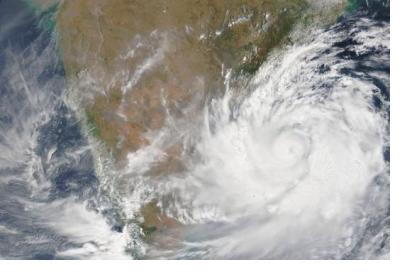The United Nations Office for Outer Space Affairs (UNOOSA) has opened registrations for the 9th Annual UN-SPIDER Conference in Beijing “United Nations International Conference on Space-based Technologies for Disaster Risk Reduction – ‘A Policy Perspective’”. The registration deadline is 15 July 2019.
The conference, which will take place 11-12 September 2019, will also celebrate 10 years of the United Nations Platform for Space-based Information for Disaster Management and Emergency Response (UN-SPIDER) in Beijing, China.
The occasion will be used for acknowledging the achievements of the countries and efforts of its partners in utilizing space-based and geospatial information in disaster management and emergency response.
The conference is organized by UNOOSA and the Ministry of Emergency Management of the People’s Republic of China, and implemented through the United Nations Platform for Space-based Information for Disaster Management and Emergency Response (UN-SPIDER).
It follows eight conferences held since 2011. These conferences offered a forum for disaster management communities and experts to strengthen their capabilities in using space-based information to identify, assess, monitor and respond to disaster risks and integrate space technology into long-term disaster risk management efforts.
To contribute to the target E of the Sendai Framework - focused on Disaster Risk Reduction (DRR) strategies - UN-SPIDER has promoted the following concepts through the Technical Advisory Missions it has undertaken to several countries for over a decade:
- Advanced Earth observation systems provide evidence-based spatial information
- Evidence-based spatial information provides an enhanced understanding of the risks
- Strategies based on risk information lead to factual DRR strategies
Several countries are incorporating the use of space-based information in their revised or new DRR policies and strategies and other countries need to follow this example. The objectives of the conference are:
- Highlight role space-based technologies in DRR policies
- Demonstrate national DRR policies with the well-defined role of space-based technologies
- Emphasize on policies for involving space-based information into national geospatial infrastructure
- Policies to action
The conference aims to provide a platform to discuss a policy perspective and share experiences of leaders of various countries, especially bringing in the relevance of the use of space-based and geospatial technologies in full cycle of disaster management.
Expected outcomes
The conference is expected to provide thoughts, ideas and help formulate programmes to achieve the following:
- Strengthening the policy framework of national disaster management agencies for utilizing space-based information in line with the Sendai Framework
- Provide guidance on incorporating the use of space-based information in national DRR strategies
- Link DRR strategies to the policies related to the geospatial sector such as geospatial policies, remote sensing policies, data sharing policies, NSDI etc.
- Prepare a solid strategic base to contribute to the global frameworks namely, the 2030 Agenda for Sustainable Development, the Sendai Framework for Disaster Risk Reduction 2015-2030 and the Paris Agreement stemming from COP21
The recommendations of the conference will be compiled in the form of the report which will be made available to the Scientific and Technical Subcommittee of COPUOS in 2020.
| Attachment | Taille |
|---|---|
| Information note - 9th UN-SPIDER Beijing Conference | 170.05 KB |

